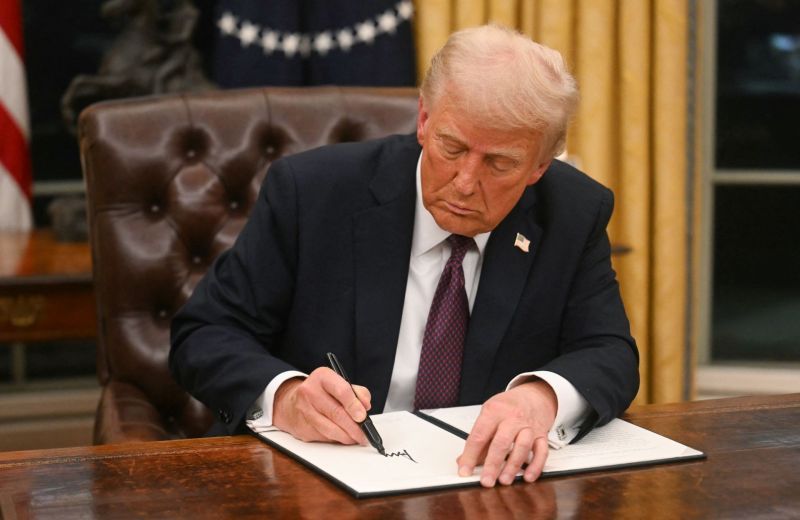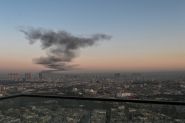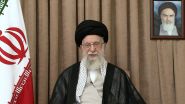- Home
- Middle East
- Trump Seriously Considering Iran's Offer of Indirect Nuclear Talks

United States President Donald Trump, signing a Presidential decree. ©Jim Watson / AFP
The White House is carefully weighing an Iranian proposal for indirect nuclear talks while simultaneously ramping up US military presence in the Middle East as President Trump considers potential military strikes, according to two US officials who spoke to Axios.
President Trump has expressed a preference for reaching a deal, cautioning that without one, "there will be bombing." The timeline is uncertain, since Trump has given Iran a two-month deadline to reach an agreement, although it's unclear when this period began.
Within the White House, there is an ongoing debate between those who believe a deal is feasible and those who view negotiations as futile, favoring military action against Iran's nuclear facilities. Meanwhile, the Pentagon is significantly increasing its military assets in the region, ensuring that if Trump decides to proceed with action, he will have ample resources at his disposal.
Recently, Trump received Iran's formal response to a letter he sent to Supreme Leader Ali Khamenei three weeks ago. While Trump proposed direct nuclear negotiations, Iran agreed only to indirect talks mediated by Oman. Although the Trump administration believes direct talks would be more effective, they are open to the proposed indirect format and have no objections to Oman acting as a mediator.
Discussions are ongoing, with no decisions made yet. "After the exchange of letters, we are now exploring next steps in order to begin conversations and trust building with the Iranians," one US official said.
Tensions between Tehran and Washington escalated before Trump's recent threat to bomb Iran if a deal isn't reached. On Monday, Khamenei asserted that while he doesn't believe the US would attack Iran, "they will certainly receive a heavy blow in return" if they do. Iran also lodged a formal diplomatic protest through the Swiss embassy, warning of a "decisive and immediate" response to any threat.
The commander of the Iranian Revolutionary Guards Corps remarked, "The U.S. has 10 bases and 50,000 soldiers in the region. ... If you live in a glass house, you shouldn't throw stones," during a televised statement. Khamenei adviser and former parliamentary speaker Ali Larijani emphasized that if the U.S. targets Iran's nuclear facilities, Iranian public opinion will push the government to pursue nuclear weapons development.
President Trump withdrew from the 2015 nuclear deal, advocating that his "maximum pressure" strategy would compel Iran to negotiate a better agreement. However, neither he nor President Biden has secured a new deal. In the interim, Iran has significantly increased its uranium enrichment, reaching a nuclear threshold status — though Tehran maintains it does not seek nuclear weapons. Iran is also unwilling to negotiate on non-nuclear issues, such as its missile program, which Trump previously insisted must be included.
The Pentagon recently announced the deployment of additional troops and air assets to the Middle East, with aircraft carriers Truman and Vinson remaining in the region. Last week, several B-2 stealth bombers were sent to the Diego Garcia military base in the Indian Ocean, a move a U.S. official described as “not disconnected” from Trump's deadline to Iran. The B-2 bombers are capable of carrying large bunker-buster bombs, essential for any potential strikes on Iran's underground nuclear sites. "Should Iran or its proxies threaten American personnel and interests in the region, the U.S. will take decisive action to defend our people," stated Pentagon spokesperson Sean Parnell.
US officials noted that Trump does not want a war with Iran but needs military assets to establish deterrence during negotiations and to be ready if talks fail and the situation escalates rapidly.
Read more



Comments